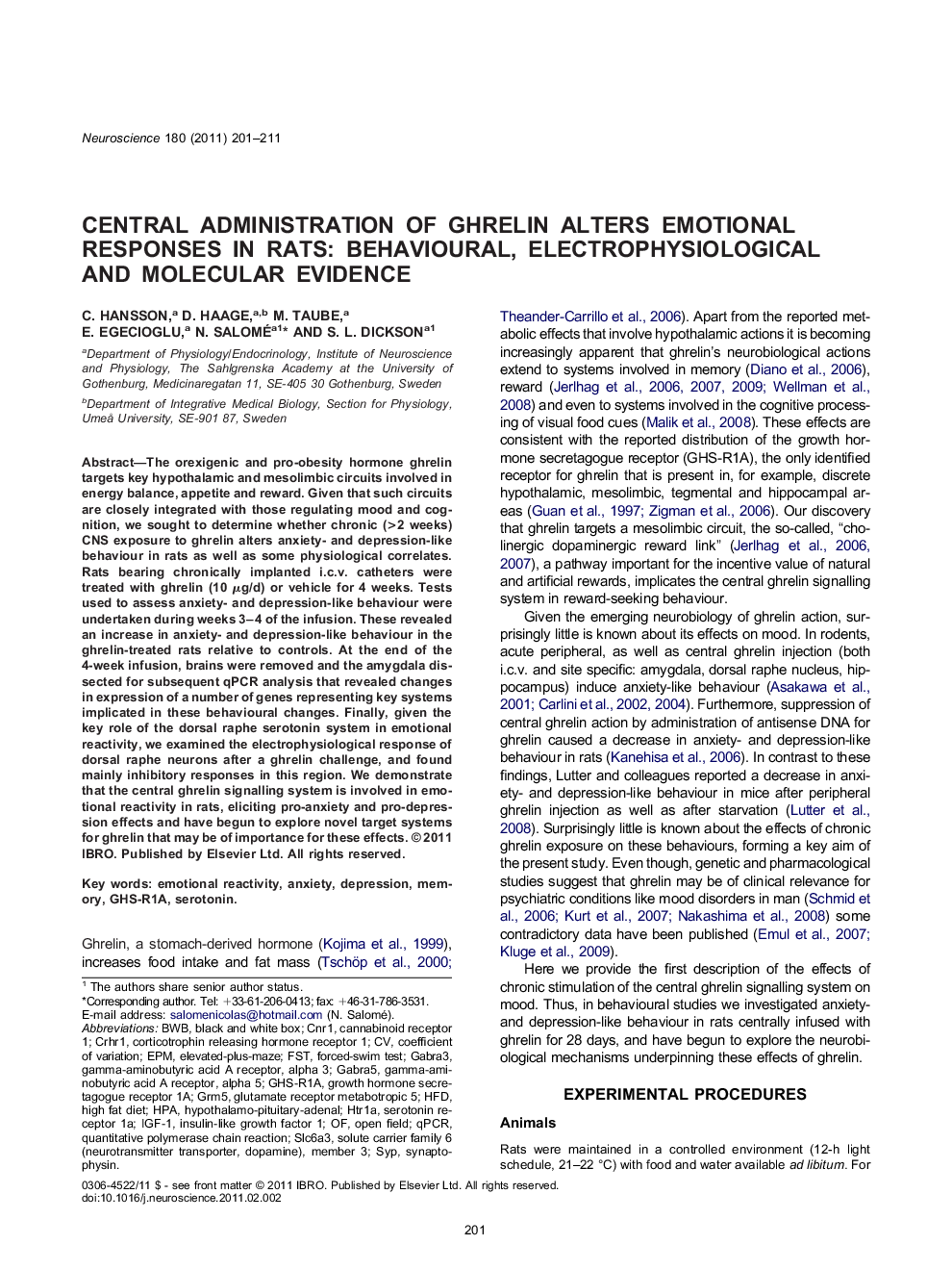| Article ID | Journal | Published Year | Pages | File Type |
|---|---|---|---|---|
| 4339002 | Neuroscience | 2011 | 11 Pages |
The orexigenic and pro-obesity hormone ghrelin targets key hypothalamic and mesolimbic circuits involved in energy balance, appetite and reward. Given that such circuits are closely integrated with those regulating mood and cognition, we sought to determine whether chronic (>2 weeks) CNS exposure to ghrelin alters anxiety- and depression-like behaviour in rats as well as some physiological correlates. Rats bearing chronically implanted i.c.v. catheters were treated with ghrelin (10 μg/d) or vehicle for 4 weeks. Tests used to assess anxiety- and depression-like behaviour were undertaken during weeks 3–4 of the infusion. These revealed an increase in anxiety- and depression-like behaviour in the ghrelin-treated rats relative to controls. At the end of the 4-week infusion, brains were removed and the amygdala dissected for subsequent qPCR analysis that revealed changes in expression of a number of genes representing key systems implicated in these behavioural changes. Finally, given the key role of the dorsal raphe serotonin system in emotional reactivity, we examined the electrophysiological response of dorsal raphe neurons after a ghrelin challenge, and found mainly inhibitory responses in this region. We demonstrate that the central ghrelin signalling system is involved in emotional reactivity in rats, eliciting pro-anxiety and pro-depression effects and have begun to explore novel target systems for ghrelin that may be of importance for these effects.
▶Chronic central ghrelin treatment increases anxiety-like behaviour in rodents. ▶Genes involved in emotional reactivity had altered expression in ghrelin-treated rats. ▶Ghrelin inhibits the firing rate of putative serotonergic cells in the dorsal raphe.
